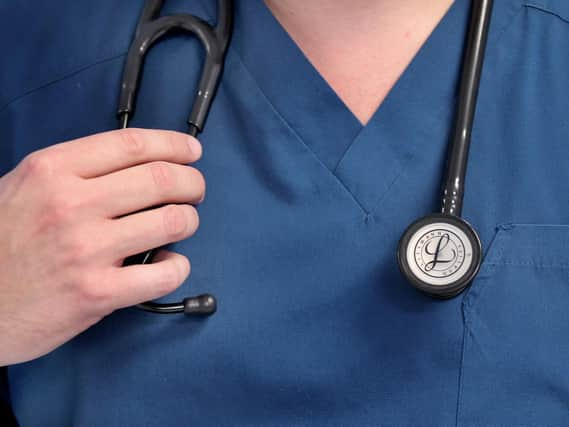Calls for a 'rapid expansion' in GP workforce as figures reveal rising number of patients in Leeds


NHS Digital figures show the city had 898,660 patients registered across 93 practices as of the end of June.
This meant each GP team was dealing with an average of 9,663 patients - up slightly from 9,609 in June last year.
Advertisement
Hide AdAdvertisement
Hide AdThe number of patients in Leeds increased by 5,066 over this time, while the number of practices remained unchanged.
The figures also revealed stark differences in patient number between practices - with one surgery having 1,691 times as many patients as another.
Leeds Student Medical Practice had the most patients registered, with 40,589, while The Avenue Surgery in Alwoodley had the fewest – 24.
The British Medical Association (BMA) said a rapid expansion of the GP workforce across England is needed, as the number of patients per practice hit a new national record.
Advertisement
Hide AdAdvertisement
Hide AdAcross England, 60.8 million patients were registered at 6,571 facilities in June – equating to an average of 9,258 people per practice.
This was up 2.4 per cent on the previous year and was the highest figure since comparable quarterly records began in 2015.
Richard Vautrey, Leeds GP and chairman of the BMA’s GP committee said: “The differences seen throughout England reflect the overall workforce crisis, which has been troubling for over a decade now.
"Numbers of GPs are falling while demand rises, leaving us with a severe shortage.
Advertisement
Hide AdAdvertisement
Hide Ad"With a growing and ageing population, only a medical workforce expansion will give us hope that we can offer good quality care to everyone in the future.”
He urged the Government to rapidly grow the medical workforce by at least 31 per cent to ensure all citizens receive the same standard of care.
The figures come as new research from the University of Cambridge found that there were fewer GPs per patient in poorer parts of England compared to wealthier regions.
The academics found that between September 2015 and December 2020 there were, on average, 1.4 fewer full time equivalent GPs per 10,000 patients in the most deprived areas compared to the least deprived areas.
Advertisement
Hide AdAdvertisement
Hide AdDr John Ford, the study’s senior author, said: “People who live in disadvantaged regions of England are not only more likely to have long-term health problems, but are likely to find it even more difficult to see a GP and experience worse care when they see a GP.
“This is just one aspect of how disadvantage accumulates for some people leading to poor health and early death."
The Department of Health and Social Care said the new Office for Health Promotion – to be launched later this year – will "level up the health of the nation" and close disparities.
A spokeswoman added: “We have invested £270 million to expand GP capacity, on top of the £1.5 billion for extra staff until 2023-24.
Advertisement
Hide AdAdvertisement
Hide Ad“The highest ever number of doctors accepted a place on GP specialty training in 2020 and we are committed to increasing the number of training places available to 4,000 a year, as well as targeting recruitment in hard-to-recruit areas."